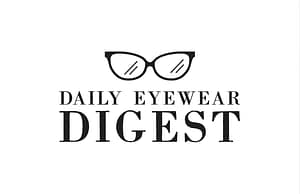Our eyes are the window to the world, yet their health is often neglected. As we move further into 2025, new risks to eye health are emerging, driven by technological, environmental, and lifestyle changes. In this article, we’ll uncover five shocking threats to eye health and explore actionable steps to protect your vision.
1. Digital Eye Strain: The Overlooked Epidemic

What Is Digital Eye Strain?
Digital eye strain, also known as computer vision syndrome, refers to discomfort and vision issues caused by prolonged screen use. Symptoms include blurred vision, dry eyes, and headaches.
The Role of Prolonged Screen Time
With remote work and digital learning now the norm, screen exposure has skyrocketed. Blue light emitted by devices can strain the eyes and disrupt sleep patterns.
Practical Solutions to Reduce Digital Eye Strain
- Follow the 20-20-20 Rule: Look at an object 20 feet away for 20 seconds every 20 minutes.
- Adjust Screen Settings: Lower brightness and use blue light filters.
- Invest in Blue-Light Blocking Glasses: These can reduce digital glare and protect your eyes.
2. UV Light Exposure: A Growing Concern
The Hidden Dangers of UV Rays on Eyes
Chronic exposure to ultraviolet (UV) rays increases the risk of cataracts, macular degeneration, and even eye cancer.
Increasing Outdoor UV Exposure and Climate Change
With global warming intensifying, UV levels have risen. Outdoor activities without proper eye protection put you at significant risk.
Preventative Measures: Sunglasses and More
- Wear UV-Blocking Sunglasses: Ensure your sunglasses provide 100% UV protection.
- Use Hats: Broad-brimmed hats add an extra layer of defense.
- Apply Sunscreen Around the Eyes: Choose gentle, hypoallergenic formulas.
3. Poor Nutrition and Its Impact on Vision

The Role of Essential Nutrients in Eye Health
Nutrients like Vitamin A, lutein, and omega-3 fatty acids are critical for maintaining healthy eyes.
Popular Diet Trends That May Harm Your Eyes
Diets that exclude key food groups can deprive your eyes of essential vitamins and minerals.
Foods and Supplements for Optimal Vision
- Leafy Greens: Rich in lutein and zeaxanthin.
- Fish: Packed with omega-3 fatty acids.
- Supplements: Consult your doctor before adding any supplements to your routine.
4. Eye Health and Chronic Diseases
Diabetes and Its Link to Retinopathy
High blood sugar can damage the retina, leading to vision loss. Regular monitoring is essential.
Hypertension and Eye Damage
High blood pressure can harm the optic nerve and blood vessels in the eye, resulting in permanent damage.
Preventing Vision Loss Through Chronic Disease Management
- Monitor Blood Sugar and Blood Pressure: Keep these levels within a healthy range.
- Maintain a Balanced Diet and Exercise Regularly: These habits promote overall health.
5. Rising Prevalence of Myopia in Young People

The Myopia Epidemic: Causes and Trends
Myopia, or nearsightedness, is becoming more common, particularly in children.
The Impact of Indoor Lifestyles and Lack of Natural Light
Reduced outdoor activity and constant screen time are significant contributors to this epidemic.
Solutions: Vision Therapy and Lifestyle Changes
- Encourage Outdoor Play: Aim for at least two hours daily.
- Limit Screen Time: Set clear boundaries for device usage.
- Explore Orthokeratology: These specialized lenses can help manage myopia progression.
Innovations in Eye Care Technology in 2025
- Advances in Early Detection of Eye Diseases: AI-powered diagnostic tools can identify conditions before symptoms arise.
- Breakthroughs in Eye Surgeries: New procedures are less invasive and more effective.
- Wearable Tech: Smart glasses now track eye health metrics in real-time.
Tips for Daily Eye Care in 2025

- Regular Eye Exams: Visit an eye specialist annually.
- Simple Habits: Blink more often and use artificial tears if needed.
- Eye Exercises: Roll your eyes, focus-shift, and palm for relaxation.
FAQs About Eye Health Risks in 2025
What Are the Most Common Eye Problems Today?
Dry eyes, cataracts, glaucoma, and myopia top the list.
How Can Screen Time Be Managed for Better Eye Health?
Follow the 20-20-20 rule and reduce device brightness.
Are There Effective Supplements for Vision?
Yes, supplements containing lutein, zeaxanthin, and omega-3s can support eye health.
How Does UV Light Damage the Eyes?
UV rays can harm the cornea, lens, and retina, leading to long-term damage.
Can Myopia Be Reversed Naturally?
While it can’t be reversed, its progression can be managed through lifestyle changes and vision therapy.
How Often Should I See an Eye Specialist?
At least once a year or more frequently if you have a chronic condition.
Conclusion: Safeguarding Your Vision for the Future
Protecting your eyes in 2025 is crucial as modern risks evolve. By adopting healthy habits, leveraging advancements in technology, and staying informed, you can maintain excellent vision for years to come.

